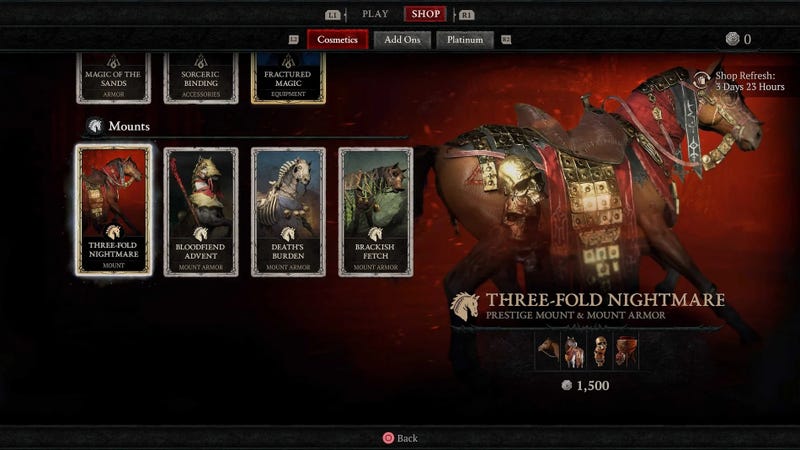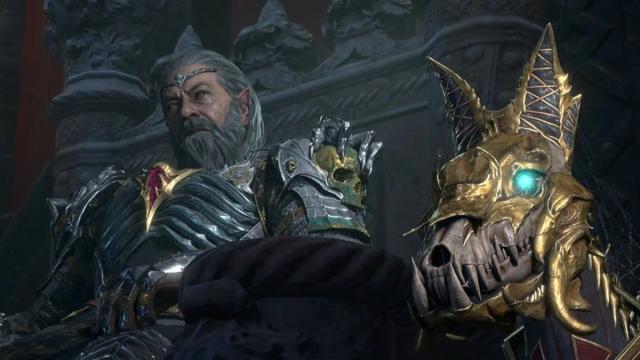It’s been an unusually good year for blockbuster games. Dungeons & Dragons RPG Baldur’s Gate 3 is the latest one, a sprawling fantasy adventure filled with an overwhelming number of choices that let you spark a civil war one moment and have sex with a bear the next. That scope and its subsequent success has kicked off a firestorm of debate about what is and should be possible in the world of big-budget games and what players should expect from a messy, high-stakes industry full of buggy launches and microtransaction gouging.
At the centre of the debate is a video by IGN’s director of video content strategy, Destin Legarie, claiming “Baldur’s Gate 3 is Causing Some Developers to Panic.” Published on August 10, it positions the new hit PC game as an example of what fans should expect in terms of quality, creativity, and ambition in the “AAA” gaming space. It already has over a million views on YouTube alone, sparking fierce reactions on either side of the conversation. Frustratingly, the arguments presented in it don’t make much sense—instead, it’s a disappointing and confusing mess of vague finger-pointing that reduces a complex situation into a consumerist backlash.
Read More: Baldur’s Gate 3: The Kotaku Review
The video focuses on a Twitter thread by indie dev Xalavier Nelson Jr, whose work includes games like Hypnospace Outlaw, Space Warlord Organ Trading Simulator, and the upcoming El Paso, Elsewhere, preemptively urging fans not to treat Baldur’s Gate 3 like the rule rather than the exception. “This is not a new baseline for RPGs—this is an anomaly,” he wrote prior to release. “Trying to do the same thing in the same way, especially without the same advantages, could kill an entire GROUP of studios.”
Instead of engaging with the structural advantages and inherent risks involved in a large, veteran indie company like Larian Studios making Baldur’s Gate 3, the video casts Nelson’s thread as an argument against wanting games to be better, and in particular “customers” expecting more for the money they spend on the latest “next-gen” $110 releases. It’s a bizarre pivot that ends up using Baldur’s Gate 3’s critical and financial success as a cudgel against a monolithic class of video game makers who supposedly all want to sell you a lemon and a $25 in-game outfit to go along with it without getting called out. “What is up with the excuses?” quips Legarie early on.
The video has resonated with lots of fans who are understandably angry about a market for blockbuster games seemingly intent on fleecing them with microtransactions and seasonal battle passes while shortchanging them on new content and original ideas. Games like Cyberpunk 2077 overpromise and underdeliver at launch, while some new PC games from even the biggest companies appear rushed out with tons of bugs. A beloved shooter like Overwatch was gutted and haphazardly reorganized into a free-to-play battle pass model that can feel, at times, incredibly predatory. That makes it all the weirder that the video doesn’t seem to address the elephant in the room: The executives who are actually in charge of game companies whose shareholder-driven priorities trickle down into the studio floor.

Diablo IV’s $15 horse armour was made by a studio currently owned by Activision, whose chief executive has made hundreds of millions in bonuses off annual Call of Duty releases and their lucrative in-game stores. Electronic Arts’ fortunes continue to be buoyed by sports franchises that make incremental adjustments each year, so players have to buy into a completely new loot box-driven economy from scratch each time. Take-Two, which is publishing the $50 Red Dead Redemption port Legarie blasts near the beginning of the video, pays its CEO millions in bonuses specifically for all of the extra in-game spending players do in the online modes of both Grand Theft Auto V and Red Dead Redemption 2.
Baldur’s Gate 3 and game development hell
Baldur’s Gate 3 stands apart from these trends, and it’s not just because it was made by a large independent studio run by a life-long game designer who loves RPGs. As former journalist turned indie developer Brandon Sheffield wrote in a recent op-ed titled “Yelling is not journalism,” standouts like The Legend of Zelda: Tears of the Kingdom and Elden Ring come from established teams who are afforded the time to get it right and have been iterating on and subverting the same formulas for over a decade. Baldur’s Gate 3 might not be coming from a big company with a huge financial cushion, but it was also sold for full price while still in Early Access for three years—roughly half of its development. And I don’t know if you’ve played it, but there are still tons of bugs.
Read More: Paladin Is Baldur’s Gate 3’s Most Popular Class By A Large Margin
“There was an opportunity with a video like this to give players context for why games release the way they do, but instead, it was designed to incite anger directed at a few devs,” writes Sheffield. The people in charge of these companies, meanwhile, get to quietly count their millions. After all, they aren’t the ones who have to go on a livestream and defend the latest patch notes.

Fans love to treat studios like sports teams, considering them single-minded entities to bear the full brunt of all their praise or ire, when in reality, they are complex hierarchies full of conflicting ideas, interests, and motivations. And they’re ultimately ruled—most of them, at least—from the top down. One of the year’s biggest disappointments, Redfall, potentially offers a worthwhile lesson in that regard.
Bloomberg reported that early on in the vampire shooter’s development at Arkane Austin, parent company Zenimax was pushing for more games with “online multiplayer and monetisation options.” While the monetisation options were reportedly stripped as the live-service label became more controversial, attrition, lack of resources, and other issues still undermined the project.
That’s hardly a defense of the game that eventually shipped, but Redfall is an example of how things can go wrong during development, and understanding that is far more nuanced than just telling individual developers to do what Larian did with Baldur’s Gate 3.

Leave a Reply